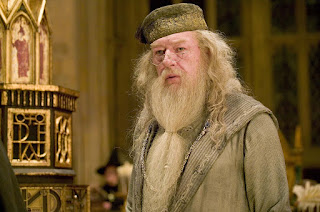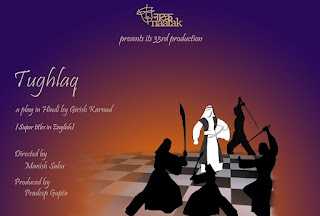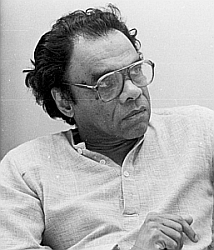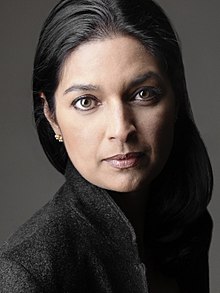Power politics
" Discourse of Power and politics in Harry Potter"
'Harry Potter' is popular. But
where is the politics? At the most explicit levels Rowling provides the
readers with a outline of a political system: the ministry of magic. This
parallel political system is kept secret from the ―nonmagic
people the ―Muggle. Harry
Potter presents at multiple
levels the different manifestations of power. There is the struggle between power and ethics showed through the war between the death eaters and the wizardingcommunity.
There are other structures of power like the headmaster Dumbledore and
professorslike Snape, Umbridge enforcing disciplinary methods
like detention and other punishments.
In his ―History of Sexuality
Foucault approaches the concept of power in this manner:
“ power is everywhere,
not because it embraces everything but because itcomes from
everywhere. And power insofar is repetitious, inert and self-reproducing…power
is not an institution, not a structure; neither is it a certain strength we are
endowed with it; it is the name of a complex strategical situation in a
particular society.” (Bhattacharya)
Rowling has faced criticism from
some quarters on grounds of packaging and promoting racism, subversion,
homosexuality, black magic, and anti-government, anti-globalist,
anti-capitalist, pro-Third World sentiments in the Harry Potter novels.
Almost everyone in the wizarding
world, and most of JK Rowling’s readers, agree that Dumbledore would have made
an infinitely better Minister for Magic than Cornelius Fudge. After the mistake
of appointing Fudge, you would hope that choosing the new Minister would be
done carefully and by at least consulting the wizarding community – after all,
Voldemort is back. And yet we are simply introduced to Scrimgeour, and equally
to Thicknesse when Voldemort manages to infiltrate the Ministry. As there had
never been an open election or even discussion about a new Minister it’s easy
enough for Thicknesse simply to be presented as the new Minister without anyone
daring to speak out. There seem to be
enough Muggle-born wizards and witches that the Muggle-Born Registration
Committee would not have come into place so very easily if there had been a way
to oppose or block the initiative publicly.
“‘Dobby has never been
asked to sit down by a wizard — like an equal –‘”
The wizarding world is not a
good place to be different. Giants, centaurs, house elves, werewolves,
goblins and Muggle-borns are just some of the groups we see are treated as
second-class citizens or even slaves by at least some of the wizarding
community. What cannot however be argued with is
the fact that laws can protect minorities, and can start the process of
changing people’s attitudes. In contrast however, the Ministry bans non-human
magic creatures from carrying wands, permits house elves to be enslaved for
generations at a time.
The lack of support from the
Ministry for any sort of rights for non-human magical creatures stands in
contrast to really quite progressive equality laws we see worldwide now. (Samantha) #An Analysis of the
Apprehensions Regarding Politics in the Harry Potter Series:Rowling has been accused of doing
‘politics’ in the Harry Potter novels largely due to the lifelike character of
Lord Voldemort, the villain of the fantasy series. He is chiefly concerned with
the acquisition of power and growing more and more powerful even at the cost of
himself. Voldemort, the dark lord of the underworld, believes that “There is no
good and evil, there is only power...and those too weak to seek it”.
We may benefit from what Rowling
has herself to say about any political message she had in mind while writing
the books. When asked about the politics and message in Harry Potter, Rowling
explained: “I wanted Harry to leave our world and find exactly the same
problems in the wizarding world. So you have the intent to impose a hierarchy,
you have bigotry, and this notion of purity, which is this great fallacy, but
it crops up all over the world. People like to think themselves superior and
that if they can pride themselves in nothing else they can pride themselves on
perceived purity. So yeah that follows a parallel [to Nazism]. It wasn’t really
exclusively that. I think you can see in the Ministry even before it's taken
over, there are parallels to regimes we all know and love.” She also said, “You
should question authority and you should not assume that the establishment or
the press tells you all of the truth.”
Rowling wants to say that politics has become a part of modern life, but
it is the root of all problems, not solutions.
(Dash)
Works Cited
Bhattacharya, Paramita. Harry Potter through the
Foucauldian lens: Exploring beyond the fantasy fiction:The magical world in
new dimension. 15 February 2018
<http://www.academia.edu/8572152/Foucauldian_Lens_Harry_Potter>.
Dash, Rajendra Kumar.
"Chasing the Shadow:Is the Harry Potter Series a Political
Discourse?" LANGUAGE IN INDIA 12 (2012).
Love,Samantha. The
Politics of Harry Potter: Corrupt Law and Totalitarian Government. 23 May
2014. 14 February 2018
<https://www.oxford-royale.co.uk/articles/harry-potter-law.html>.




Comments
Post a Comment